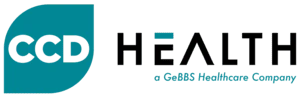How to Optimize Appointment Scheduling Experience

Here are three aspects to help you optimize appointment scheduling and positively impact your patient’s experiences.
Customer service has been changing in recent years. And although we usually believe that these changes are limited to industries such as technology, retail, and telecommunications, the truth is that customer service in health has also been transformed.
The evolution is significant, and it is good to know about your patients to understand the new trends in the field of Customer Experience (CX), regardless of the industry in which they are taking place. To connect this concept to the healthcare industry, let’s start using the term “Patient Experience”.
How does appointment scheduling impact patient experience?
The Agency for Healthcare Research and Quality (AHRQ) has defined patient experience (PX) as all contacts and interactions that a person has with the healthcare system in which he or she goes seeking care. This includes the attention of the insurance companies, appointment scheduling, and dealing with medical and administrative personnel of the attention centers.
In other words, PX is the evaluation patients make of the process of getting access to healthcare information, communication from service providers, the care of doctors, and very importantly, obtaining medical appointments on time when needed. Therefore, appointment scheduling plays a stellar role when it comes to patient experience and satisfaction.
Why are phone calls still important for appointment scheduling?
New generations, such as millennials and centennials, prefer to search for services online; however, their parents and grandparents still use phone calls as a means of communication.
This demographic group is especially vulnerable to illness, and that is why they use medical services on a regular basis. If your medical center is not ready to serve them efficiently, you will lose a large number of patients, and with them, your revenue.
Here are some important figures:
- For outpatient healthcare providers, 8-35% of the calls are abandoned on a daily basis
- 51% of those patients are not able to contact your center in the following days
- 60% of those calls are to schedule appointments
These numbers give you an idea of the missed revenue that could be generated from poor contact center management. But this problem has solutions, and in this article, we intend to give you some advice around the main 3 aspects you need to focus on, to optimize your appointment scheduling function and therefore enhance patient experience at your healthcare facility.
1. Prioritize workforce planning and management
When talking about patient scheduling, the first thing that comes to your mind is having the right number of people, in the right seats, at the right time; and this can only be achieved with a workforce management (WFM) set of processes and systems that help the company run efficiently. It also helps the company manage its people to meet the demand effectively and reduce waste.
There are loads of employees shuffling in and out of contact centers, each with somewhat rigid schedules and shifts to adhere to. Also, considering that appointment scheduling is mainly an inbound task, forecasting, and understanding incoming volumes are critically important.
Contact center agents, or as we call them, “healthcare specialists” also need to be assigned to an appropriate workload. With an imbalanced workload, specialists and patients will not be happy. Another key aspect is to focus on what really matters, KPIs such as “First Call Resolution,” “Service Level,” and “Satisfaction Surveys” should be front and center when it comes to measuring patient experience, instead of focusing on call duration, calls handled and average handling time.
2. Invest in technology to diversify your resources and scale
Although most appointments will come from the eldest demographic group, and their preferred channel is the phone, it is important to have self-serving online channels in place for the ones who prefer this type of interaction. By doing so, you are not only reducing the need for customer service specialists and making them available for other patients, but also making your business more scalable and helping increase efficiency through cost reduction in the longer term.
Other solutions such as Artificial Intelligence (AI) tools for scheduling appointments, allow you to grow your business without the need of expanding your workforce, while helping you standardize processes and improve quality and patient experience. These technologies are becoming more available and accessible than ever before, and are considered the best way to handle labor shortages in some US States, where sourcing and hiring people to work in customer service is getting harder and harder every day.
3. Leverage data analytics and Business Intelligence
This aspect has great importance since the healthcare industry is undergoing many transformational changes, such as the implementation of new electronic health record (EHR) systems and processes. The pace of those changes will likely increase in the near future.
Healthcare data analytics help organizations uncover vital insights in their data that could help them identify opportunities to provide more value to their patients, improve efficiency, and provide better-quality care at an affordable cost, not to mention other applications such as illness prediction and preventive care.
After understanding the financial impact of missed calls due to lost appointments presented before, you might be wondering—Are there other aspects of my business I should be analyzing? Or how can I make sure I am collecting the right data and measuring what matters the most? The answer to that question is simple: developing analytical capabilities within your organization that will allow your company to grow and unleash the power of all the data stored in your EMRs, EHRs and RIS systems.
Leverage CCD Health’s Business Intelligence capabilities to optimize your scheduling function
When you talk about appointment scheduling as a healthcare provider, one of the first things that come to mind is patient no-shows—people that schedule an appointment and then miss the date or don’t make it on time. Working with different partners across the US, we have realized that this is one of the most pervasive issues in the industry nationwide. At CCD Health, we have developed a predictive model that can help you identify the patients more likely to no-show, simply based on your own data readily available in your RIS, EHR or EMR.
With a business intelligence and performance excellence partner like CCD Elevate, you’ll be able to meet your goals and problem-solve with ease.
CCD Health is the leading medical call center for outpatient healthcare providers, offering exceptional patient and customer experience. Our team of over 1,000 patient care specialists works as an extension of your practice, taking tasks off your staff’s plate and assisting patients where needed.
If you are ready to increase operational efficiency and turn your client’s support into a competitive advantage, get in touch with us today, and we’ll help you make it a reality.



